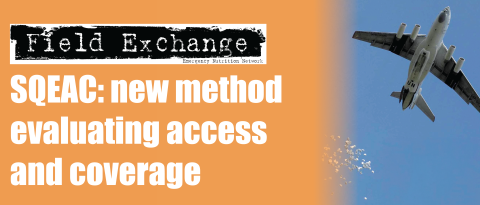Regional Consultation on Nutrition and HIV in South East Asia
A regional consultation on nutrition and HIV in South East Asia was held in Bangkok, 8-11 October 2007. Represenatives of countries from the region, together with scientists, researchers, programmers, decision makers, United Nations (UN) agencies, non-governmental organisations (NGO)s, civil society groups, caregivers, people living with HIV/AIDS groups, donors and bilaterals, gathered to review evidence, operational challenges and lessons. Recommendations for action were released in a participants' statement, summarised here.
Nearly 4 million living with HIV/AIDS live in South-East Asia, a region where 79% of the world's malnourished children reside and where several countries report over 40% stunting. With its large and rapidly growing populations, widespread malnutrition and burden of infectious and chronic disease, the region is particularly vulnerable to the HIV epidemic.
Nutrition must be incorporated into all aspects of HIV prevention, treatment and care programmes as a high priority - the challenge is to integrate nutrition into the continuum of care. 'Nutrition care and support' in this context should be defined broadly to include not only the provision of food and livelihood security, but also clinical care guidelines to include nutrition, counselling, capacity building to support integration of nutrition into care, and operational research.
Food and nutrition support is a critical component of a comprehensive response to HIV. Benefits include reduced susceptibility to infections, improved medication compliance and quality of life, prevention of mother-to-child transmission of HIV, and improved overall HIV-free survival of exposed infants through appropriate infant feeding practices.
Participants called for stronger commitment from policy makers and donors to integrate nutrition and HIV/AIDS into existing policies and make adequate resources available. A call for immediate actions included:
- Advocacy for greater awareness amongst policymakers and donors of the critical link between Nutrition and HIV and the responsibility to incorporate nutrition and HIV considerations into existing national food, nutrition and HIV policies and plans.
- Improve food security and livelihoods of families and communities affected by HIV.
- Review and update existing policies, programmes, plans of action and guide lines to reflect the nutritional requirements of people living with HIV/AIDS.
- Promote and support optimal infant feeding practices for all children, including those infected with HIV, and meet the nutritional needs of HIV-positive pregnant and lactating women.
- Involve adults and children living with HIV in the design and provision of nutritional support interventions and actively pursue gender equity and elimination of stigma as obstacles to food security and access to health services.
- Urgently and rapidly collect countryspecific HIV and related nutritional surveillance data.
- Continue building the evidence base through bio-medical, socio-cultural and operational research.
- Ensure multi-sectoral coordination and adequate resource allocation.
- Call for actions and commitments at the country level and urge country teams (Ministries/UN/NGOs) to draw up action plans that address these recommendations and regularly follow up and evaluate progress, preferably every two years.
- Make the highest level representation by UN agencies through global and regional forums such as the South Asian Association for Regional Cooperation (SAARC), the Association of Southeast Asian Nations (ASEAN), and the World Health Assembly, and through specifically organised meetings and workshops.
A report on the meeting, along with technical background papers, the participants' statement and related links are at: http://www.who.int/nutrition/topics/hiv_regional_consultation_bangkok/en/index.html
Imported from FEX website


